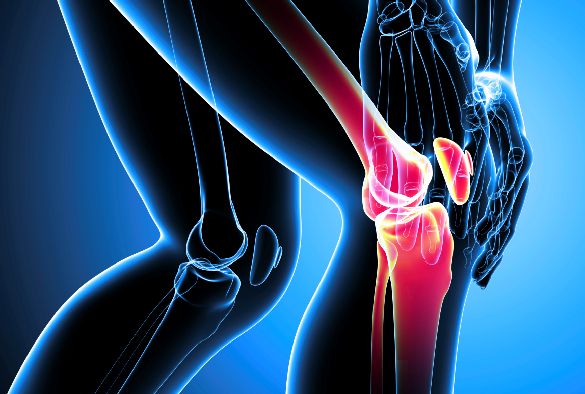A company, founded by University of Liverpool scientist, Professor Anthony Hollander, has been awarded £2 million to develop stem cell technologies that have shown potential in repairing damaged tissue in the knee.
The team at Liverpool, in partnership with NHS Blood and Transplant, is part of a £6.3 million funding initiative, supported by Innovate UK and Cell Therapy Catapult, to help further technological development in stem cell therapies in the UK.
Professor Hollander and colleagues launched the company, Azellon, to produce stem cell therapies for treatment of damaged fibrous tissues in the knee, called meniscal cartilage. Using Cell Bandage technology, the team has shown encouraging test results from combining bone marrow stem cells with a special membrane that helps deliver cells to the injured site.
Commercial use
Meniscal cartilage in the knee is a shock absorber that helps cushion the knee against stresses, but it is commonly torn in sports injuries, causing pain and swelling. To avoid removing the tissue, scientists are looking at new ways to use adult stem cells, non-specialised cells that can grow extensively, to turn into many different kinds of specialised cells, targeted at repairing damage in specific areas of the body.
Funding will allow scientists to improve product and manufacturing processes, with the aim of introducing the technology onto the market for effective commercial use in the near future.
Professor Hollander, Head of the University’s Institute of Integrative Biology, said: “With this new funding we aim to improve the special membrane so that it is easier for surgeons to implant in the knee.
“We are looking at using bone marrow stem cells from a single donor in order to provide a more consistent quality product. It is also important that we develop new ways of freezing the Cell Bandage so it can be stored ready for use.”
The team is expecting to announce the results of their first clinical trial in this field, later this year. The new funding will support the launch of a second trial using the new and improved technology.
